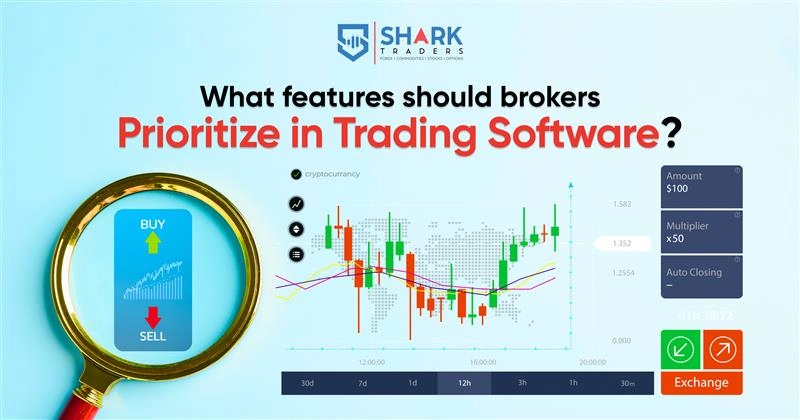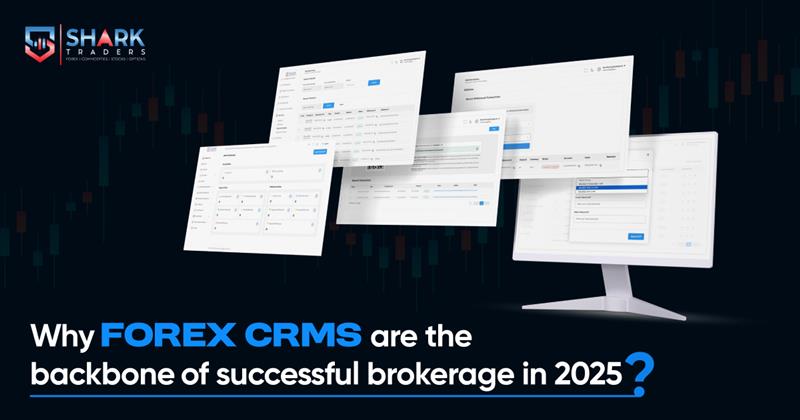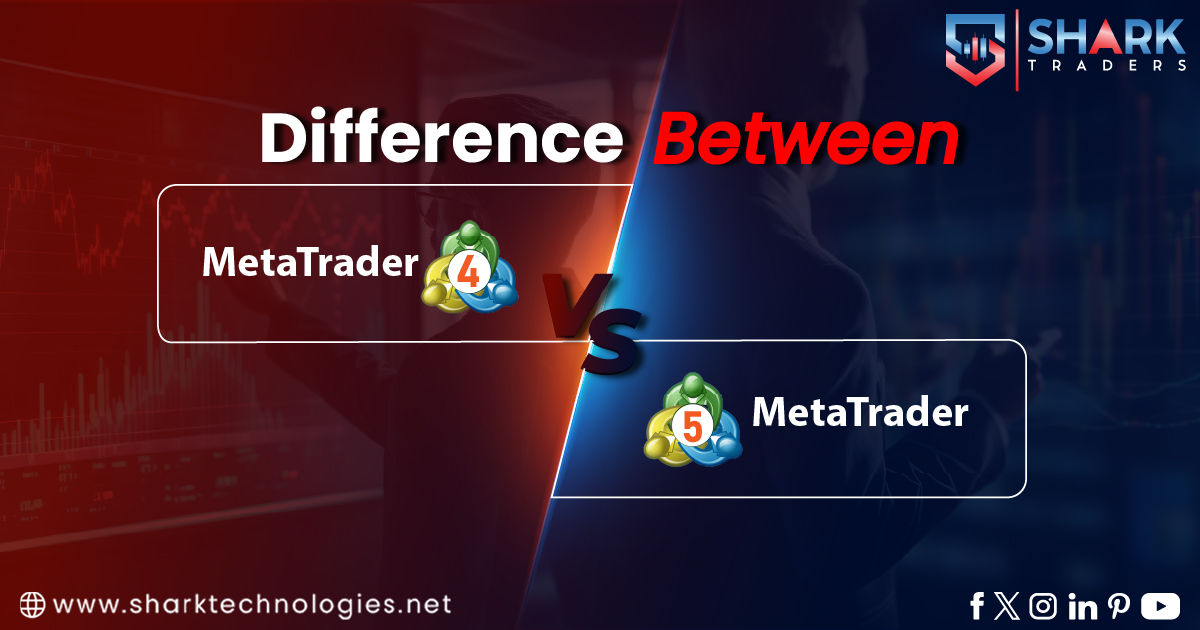Stock trading, which was once reserved for experienced brokers and Wall Street professionals, now allows various financial institutions, individual brokers, brokerage firms, and more to capitalize on this lucrative market through online trading. Opportunities are immense as traders and investors from all parts of the world invest in the Forex, crypto, and multi-asset markets, expanding the user base for these brokerages. However, to deliver streamlined access to multiple markets and serve traders worldwide, brokerages need a robust trading platform.
If you are also starting your brokerage and looking for ideal trading software, make sure to choose expertly developed and fitted with all the right tools and attributes. There is a certain set of features that actually deliver returns for your investment in a trading platform. Let’s understand them in more detail.
Understanding Trading Software For Brokers
Trading platforms are computer programs that constitute the complete architecture to manage and execute trading transactions. Thus, this software allows brokers to act as a bridge between traders and financial markets. It provides access to equities, options, cryptocurrencies, forex pairs, and many other tradable instruments.
Trading platforms streamline the trading activities for traders and investors by providing complete market data and executing trades as requested. A strong trading software has a well-engineered database framework to improve transparency, security, liquidity, and efficiency.
Types of Trading Software
Basically, there are two types of trading software: commercial platforms and proprietary or prop platforms.
Commercial trading platforms are used by independent brokerages that serve traders and professional investors. However, proprietary or prop platforms are owned by financial institutions, big brokerages, and banks for their own purposes.
Trading software is also categorized according to the device for which it is designed. Desktop platforms made for desktops and laptops are usually the most advanced ones with a sophisticated set of features. Further, app-based or modern web-based platforms are accessed by mobile phones or web browsers. They are provided with just the most important features to ensure better flexibility.
What Features To Look For In Trading Software?
When choosing a trading platform, you might need to dig a little deeper and sort out the one that isn’t useful for your traders but improves your trading services. Here is the set of features that the software must provide.
Intuitive interface
Due to the competitive and dynamic nature of financial markets, trading platforms offering access to these markets must have an intuitive and easy-to-use interface. It would allow traders to invest in opportunities on time and gain valuable trading experience.
Live Market Data
The platform can only serve traders by providing live and accurate data for various assets and financial markets. The data includes not only market trends but also news articles and price quotes, which help traders make accurate trades. An economic calendar, event tracking tools, price change alerts, news, and media channels can all be integrated with the trading platform to help deliver real-time market data.
Multiple Order Types
Along with multiple asset types, the platform should be able to support different order types to accommodate different trading activities easily. There are numerous order types, including fill or kill (FOK), immediate or cancel (IOC), stop-limit, stop-loss order, and more. This variety of order types reduces trading risk and makes trading activities easier for traders.
Security protocols
A reliable trading platform is powered by the most innovative security protocols, such as high-level encryption, multi-factor authentication, and more. It secures the personal information as well as the funds of platform users from hackers and any other unauthorized party. So, make sure that your trading platform is packed with multiple security features.
API integrations
API, or Application Programming Interface, is a kind of linking software that connects two different software programs seamlessly. The trading software can be integrated with a single API or even multiple APIs to enhance the functionality of the platform with the help of third-party service providers. Brokers can leverage these APIs to provide multiple services from a single trading software by integrating APIs for several payment gateways, tax reporting tools, social media applications, etc.
Analytical tools
An ideal trading platform has portfolio optimization, risk management, backtesting, and multiple other analytical tools. As the term suggests, analytical tools allow traders and investors to analyze the performance of different assets in the financial market. With such insights, traders can make better trading decisions, which improves their trading experience and investment portfolios.
Paper trading
It is the most useful feature, especially for new traders and experienced traders who want to test their complex trading strategies. It eliminates the need for actual assets while still providing real-world trading experience. Most importantly, the paper trading feature allows traders to evaluate not only their trading strategies, but also exchanges, order types, APIs, and other factors.
Customer Support
Financial markets operate 24/7, which means traders are consistently engaged on the platform. However, they may require assistance with specific features or encounter some other issue with the trading platform. To address this, brokers need to provide quick responses and maintain platform reliability. For this reason, the trading platform is integrated with a customer help desk to avoid delays and resolve issues quickly.
Compliance Management
Some brokers overlook the importance of this feature, but it is crucial to provide legal and ethical trading services. Thus, the trading software must have a compliance monitoring and reporting system to ensure adherence to regulatory requirements and industry standards. These regulations usually consist of KYC (Know Your Customer) requirements, anti-money laundering protocols, etc. Compliance with these regulations delivers trust among the platform users that the platform is totally ethical and doesn’t engage in fraudulent activities.
Conclusion
A broker must consider several factors when selecting trading software, including budget, funding strategies, and the size of the target user base. However, the most crucial aspect is the features discussed in this article. If you are looking for high-tech brokerage trading software equipped with advanced technologies and premium features, Shark Technologies can assist you! You can try our white-label trading software, Shark Traders, and customize it per your required features and functionalities. Contact us to know more.
Also Reading : Everything You Should Know About Multi-Asset Trading Platforms in 2025




